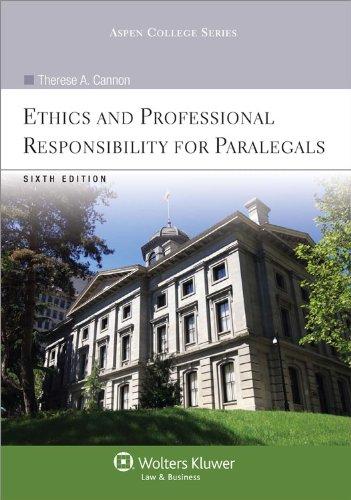The facts relating to this case are undisputed. The accused was licensed to practice law in California
Question:
The facts relating to this case are undisputed. The accused was licensed to practice law in California in 1974 and was admitted to practice law in Oregon in 1984. During the spring of 1988, the accused began conducting ‘‘living trust’’ seminars and selling ‘‘living trust packages,’’
which included pour-over wills and directives to physicians.
The accused and two of his employees, who were paralegals, travelled throughout Oregon and northern California, conducting seminars and preparing the living trust packages. If a person at a seminar indicated that he or she was interested in discussing a living trust package, the accused or one of the paralegals would make an appointment and return to meet with the client. The accused or the paralegal would gather information from the client and then prepare the documents for the living trust package in the accused’s Medford office.
At trial, Monnett, a paralegal employed by the accused, testified that he usually travelled alone, conducted seminars before groups, collected information from prospective clients, and assisted clients in executing the documents contained in the trust packages. He testified that the questions that he answered at the seminars were general and did not apply to individual clients’ problems.
Monnett also testified that, during meetings with individual clients, he read their wills and explained to them the operative parts of the will.
He also testified that he inquired into the clients’ assets and advised them whether or not they needed a trust. He reviewed the trusts and other legal documents with the clients. Some of the clients never met the accused and dealt only with Monnett throughout the process. Both Monnett and the other paralegal employed by the accused, Pesterfield, testified that the accused instructed them to call him if they had legal questions. Both also testified that they believed that the accused reviewed all the documents that were prepared because he signed all of them and because occasionally he discussed the contents of the documents with Monnett.
Ordinarily, after the documents were prepared, the accused or one of the paralegals scheduled an additional appointment with the client to execute the documents. . . .
The accused testified that clients in the Medford and Ashland area ordinarily executed the documents in the living trust packages in the accused’s office, where the accused’s office staff members served as witnesses.
When the accused or the paralegals executed documents at seminar sites, however, it was difficult for them to have the wills and directives to physicians witnessed.
The accused and the paralegals began a practice of taking the wills and directives to physicians back to the accused’s office in Medford after they were signed by the clients at the seminar sites and directing the office staff to sign the documents as witnesses. The signatures of the ‘‘witnesses’’
on the wills were notarized either by the accused or by one of his employees.
The signatures on the directives to physicians were not notarized.
The accused then mailed the signature pages back to the clients. . . .
[T]he accused admitted that he had caused the wills and directives to physicians of approximately 300 clients to be executed outside the presence of the witnesses, who later signed the wills and directives to physicians.
The accused stated before the trial panel that he knew that a will is invalid unless it is either executed or affirmed by the testator in the presence of two witnesses. He also testified that part of the fee he charged his clients was for a valid will and that he understood that his clients believed that they were receiving valid wills as part of the living trust packages. . . .
Here, the accused charged his clients a fee for the performance of certain services, including the preparation........
Questions about the Case 1 What exactly did the paralegals do in this case that constitutes unauthorized practice of law?
2 Could the attorney have run his practice in a way that avoided the ethical violations cited? How?
3 What was wrong with the way the wills were executed? What was the result for the client? Is this legal malpractice? (See Chapter 8.)
4 What did the court say about the attorney charging fees for the invalid wills?
5 Did the court condemn the activities of the paralegals as unauthorized practice of law?
6 What definition of the practice of law did this court use?
Step by Step Answer:

Ethics And Professional Responsibility For Paralegals
ISBN: 272860
6th Edition
Authors: Therese A. Cannon





